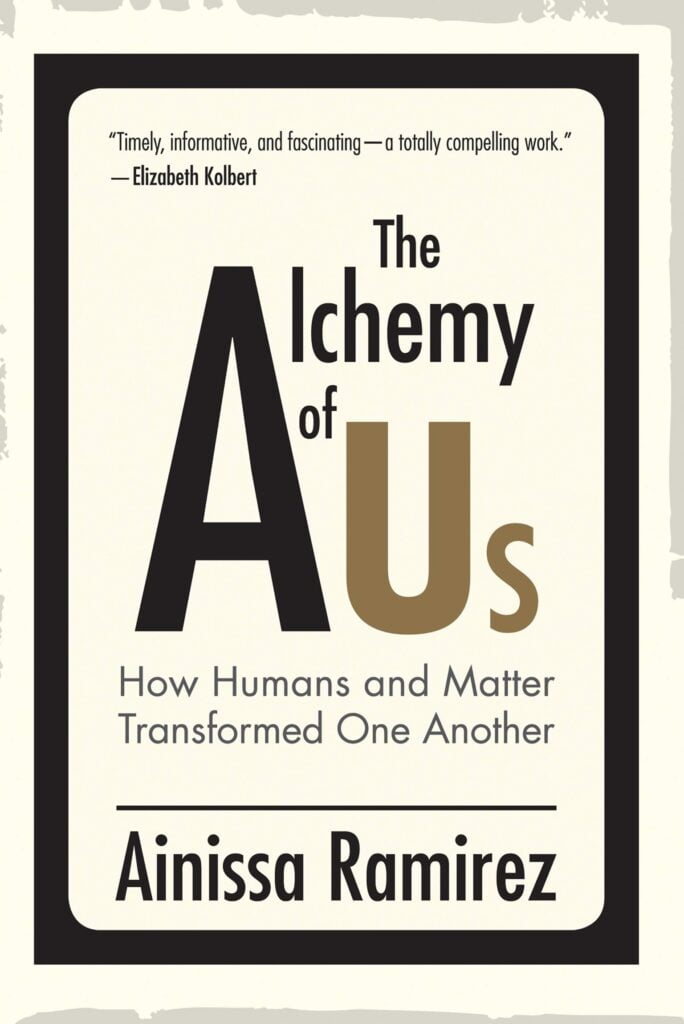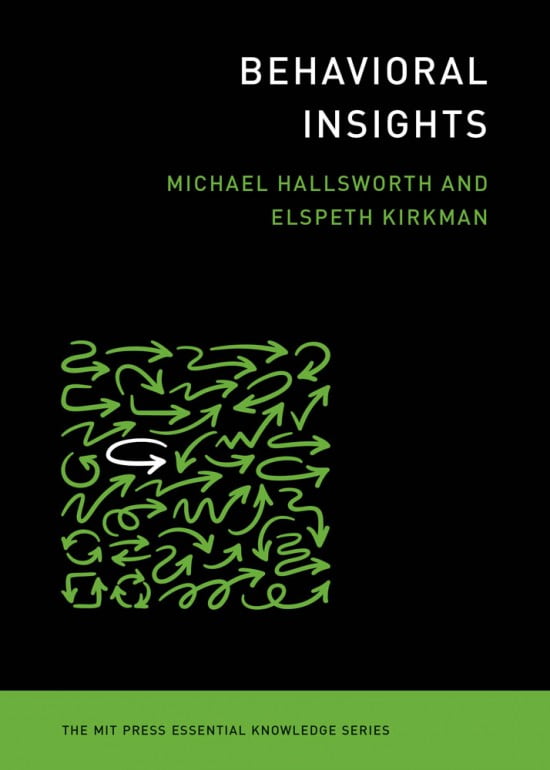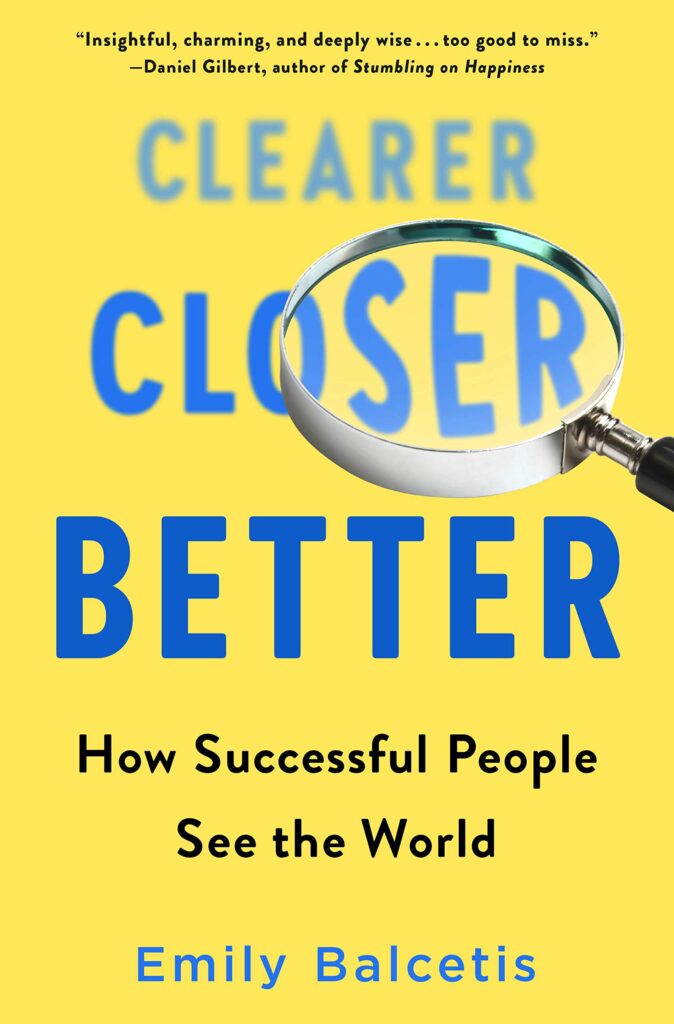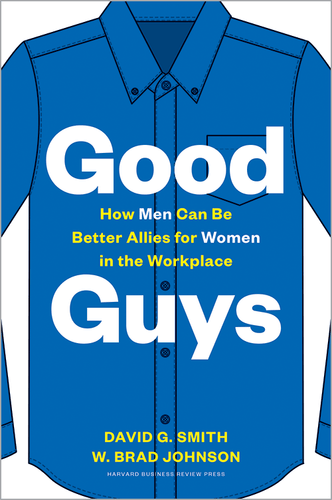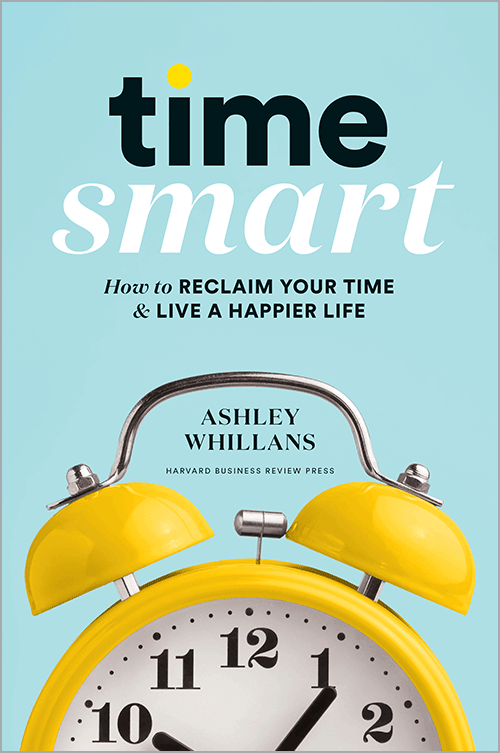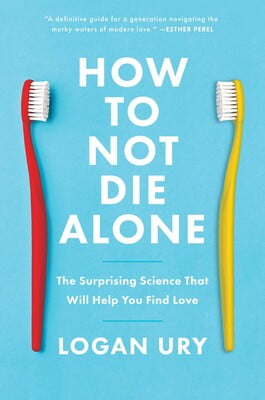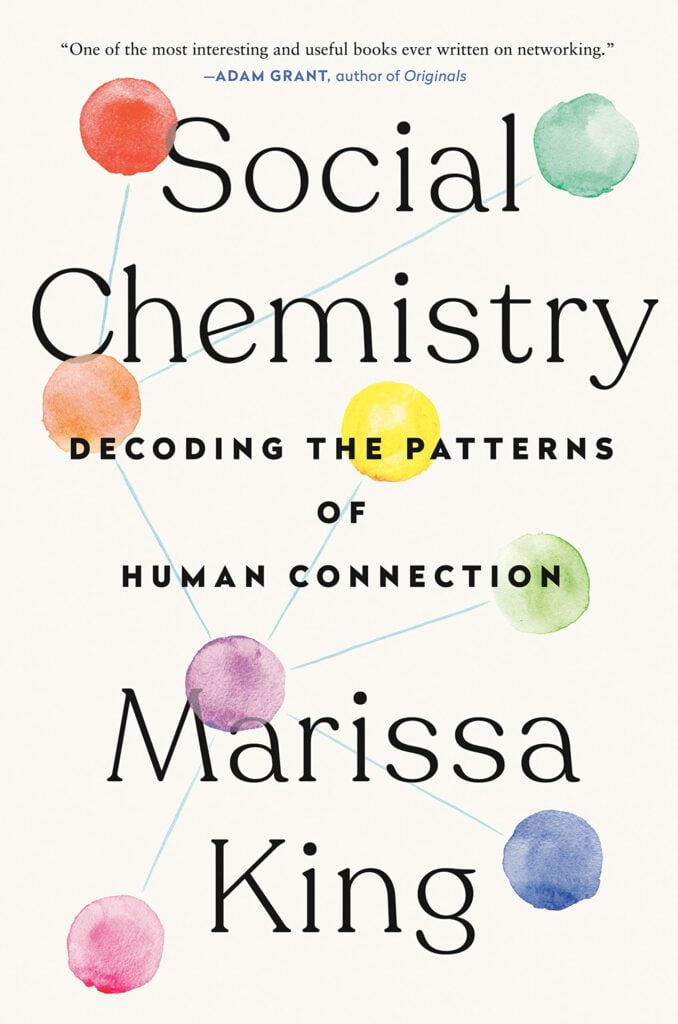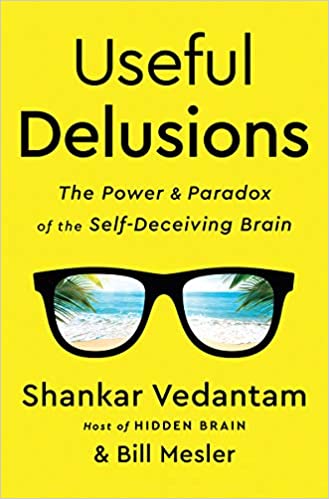In the “before times,” most of us weren’t used to wearing a mask and certainly hadn’t sewn one. We didn’t imbibe over Zoom or plan tele-weddings. We didn’t encourage family and friends to stay away because we loved them. And we certainly hadn’t memorized an album’s worth of songs to wash our hands to.
Over the past year, our understanding of ourselves, others, and the world has been stretched and pulled. These fresh boundaries are reflected in the books we’ve selected for this list.
On the list, you’ll recognize some titles from our selection of summer reads and see we’ve added a handful of recent arrivals. At the end, we highlight several books to keep an eye out for in early 2021.
Whether you’re reflecting on the year, looking forward to the next, or actively trying to avoid doing either, let this list be your license to find a companion in a behavioral science book or two. And if you’re in the market for a gift for someone who’s open to stretching their mind too, look no further.
— Antonia Violante, Heather Graci, and Evan Nesterak
This year we’re trying something new. We’re testing out a partnership with Bookshop.org, a website dedicated to supporting local and independent bookstores. When you purchase a book using a link below, we’ll receive a small commission that helps us sustain our nonprofit mission. All of the books on this list and covered on our site are independently selected and reviewed by our editorial team. (Bookshop is relatively new, so shipping is currently only available in the United States. You can find more about Bookshop here.)
The Alchemy of Us: How Humans and Matter Transformed One Another
By Ainissa Ramirez
From the back cover: “Ramirez describes, among other things, how our pursuit of precision in timepieces changed how we sleep; how the railroad helped commercialize Christmas; how the necessary brevity of the telegram influenced Hemingway’s writing style; and how a young chemist exposed the use of Polaroid’s cameras to create passbooks to track black citizens in apartheid South Africa . . . Ramirez shows not only how materials were shaped by inventors but also how those materials shaped culture.”
Read an excerpt from The Alchemy of Us on the Behavioral Scientist: “When going for a checkup, patients might do a double take when doctors ask them a new question in addition to how much they smoke, drink, or exercise. That question is, ‘Are you getting the right kind of light?’”
Behavioral Insights
By Michael Hallsworth and Elspeth Kirkman
From the back cover: “The behavioral insights approach applies evidence about actual human behavior—rather than assumptions about it—to practical problems. This volume in the MIT Press Essential Knowledge series, written by two leading experts in the field, offers an accessible introduction to behavioral insights, describing core features, origins, and practical examples.”
Read an excerpt from Behavioral Insights on the Behavioral Scientist: “We think a priority is for the behavioral insights approach to incorporate new thinking on more reflexive, more dynamic and nuanced forms of change. One promising way of doing so is to adapt principles from human-centered design.”
The Biggest Bluff: How I Learned to Pay Attention, Master Myself, and Win
By Maria Konnikova
From the back cover: “It’s true that Maria Konnikova had never actually played poker before and didn’t even know the rules when she approached Erik Seidel, Poker Hall of Fame inductee and winner of tens of millions of dollars in earnings, and convinced him to be her mentor. But she knew her man: a famously thoughtful and broad-minded player, he was intrigued by her pitch that she wasn’t interested in making money so much as learning about life.”
Read our Q&A with the author, Maria Konnikova: “Poker forces you to realize that you can’t control everything. But you can control yourself—and often, that’s what matters.”
The Catalyst: How to Change Anyone’s Mind
By Jonah Berger
From the back cover: “Successful change agents know it’s not about pushing harder, or providing more information, it’s about being a catalyst. Catalysts remove roadblocks and reduce the barriers to change. Instead of asking, ‘How could I change someone’s mind?’ they ask a different question: ‘Why haven’t they changed already? What’s stopping them?’”
Read an excerpt from The Catalyst on the Behavioral Scientist: “The notion that one conversation can durably change minds about a controversial issue is heartening—amazing, even. But it brings up an even more important question: Why were these conversations so effective?”
Clearer, Closer, Better: How Successful People See the World
By Emily Balcetis
From the back cover: “Drawing on her own rigorous research and cutting-edge discoveries in vision science, cognitive research, and motivational psychology, Balcetis offers unique accounts of the perceptual habits, routines, and practices that successful people use to set and meet their ambitions.”
Don’t Believe a Word: The Surprising Truth About Language
By David Shariatmadari
From the back cover: “In Don’t Believe A Word, linguist David Shariatmadari takes us on a mind-boggling journey through the science of language, urging us to abandon our prejudices in a bid to uncover the (far more interesting) truth about what we do with words.”
Read an excerpt from Don’t Believe a Word on the Behavioral Scientist: “The exact manner in which languages slice up the spectrum—the way they happen to label colors—can have a measurable effect on our perception.”
Engaged: Designing for Behavior Change
By Amy Bucher
From the back cover: “Whether you’ve studied psychology or are new to the field, you can incorporate behavior change principles into your designs to help people achieve meaningful goals, learn and grow, and connect with one another. Engaged offers practical tips for design professionals to apply the psychology of engagement to their work.”
Good Guys: How Men Can Be Better Allies for Women in the Workplace
By David Smith and Brad Johnson
From the back cover: “Good Guys is the first practical, research-based guide for how to be a male ally to women in the workplace. Filled with firsthand accounts from both men and women, and tips for getting started, the book shows how men can partner with their female colleagues to advance women’s leadership and equality by breaking ingrained gender stereotypes, overcoming unconscious biases, developing and supporting the talented women around them, and creating productive and respectful working relationships with women.”
Read an excerpt from Good Guys on the Behavioral Scientist: For male allies, confronting other men can be the most challenging part of allyship. Here’s why it’s so important, and how to do it effectively.
How to Decide: Simple Tools for Making Better Choices
By Annie Duke
From back cover: “Making good decisions doesn’t have to be a series of endless guesswork. Rather, it’s a teachable skill that anyone can sharpen. In How to Decide, bestselling author Annie Duke and former professional poker player lays out a series of tools anyone can use to make better decisions.”
Read our Q&A with the author, Annie Duke: “I take the ‘menu strategy’ to most decisions. The idea is that the heavy lifting is in the sorting: this is an option I like; this is an option I don’t like. Where we get into a lot of trouble is that we fool ourselves into thinking that once you get down to the set of things that we’d be willing to choose, that we somehow think we can pick between them, and for almost every case we can’t.”
How You Say It: Why You Talk the Way You Do — And What It Says About You
By Katherine D. Kinzler
From the back over: “Your accent alone can determine the economic opportunity or discrimination you encounter in life, making speech one of the most urgent social-justice issues of our day. Our linguistic differences present challenges, Kinzler shows, but they also can be a force for good.”
Humankind: A Hopeful History
By Rutger Bregman
From the back cover: “International bestseller Rutger Bregman provides new perspective on the past 200,000 years of human history, setting out to prove that we are hardwired for kindness, geared toward cooperation rather than competition, and more inclined to trust rather than distrust one another.”
The Kindness of Strangers: How a Selfish Ape Invented a New Moral Code
By Michael McCullough
From the back cover: “From the moment nomadic humans first settled down until the aftermath of the Second World War, our species has confronted repeated crises that we could only survive by changing our behavior. As McCullough argues, these choices weren’t enabled by an evolved moral sense, but with moral invention—driven not by evolution’s dictates but by reason.”
Read an excerpt from The Kindness of Strangers on the Behavioral Scientist: In 1755, an earthquake in Lisbon forever changed the way we think about our place in the world and our obligation to others suffering, even in countries far away.
Out of My Skull: The Psychology of Boredom
By James Danckert and John D. Eastwood
From the back cover: “When we’re bored, our minds are telling us that whatever we are doing isn’t working―we’re failing to satisfy our basic psychological need to be engaged and effective. Too many of us respond poorly . . . But Danckert and Eastwood argue, we can let boredom have the opposite effect, motivating the change we need.”
Read an op-ed by James Danckert on the Behavioral Scientist: “The function of boredom is not to make us bored, it is a call to action. It is telling us that what we are doing now is failing to satisfy us in some important way.”
The Passion Economy: The New Rules for Thriving in the 21st Century
By Adam Davidson
From the back cover: “A dissatisfied accountant overturning his industry, a zealous father creating a better chocolate bar for his children, a family of craftsmen meeting the technological needs of Amish farmers, as well as the latest academic research, Davidson demonstrates how the twentieth-century economy of scale has given way in this century to an economy of passion.”
Read our Q&A with the author, Adam Davidson: “Passion is not a unitary thing. It’s a combination of a bunch of different things that you uniquely combine, and in a way that nobody else does. That doesn’t mean you have to get a job on day one that does all five things that you are passionate about—you’ll probably have to mess around with different things.”
The Pattern Seekers: How Autism Drives Human Invention
By Simon Baron-Cohen
From the back cover: “Baron-Cohen argues that autistic people have played a key role in human progress for seventy thousand years, from the first tools to the digital revolution. How? Because the same genes that cause autism enable the pattern seeking that is essential to our species’s inventiveness.”
Perfectly Confident: How to Calibrate Your Decisions Wisely
By Don A. Moore
From the back cover: “Decades of research demonstrates that we often have an over-inflated sense of self and are rarely as good as we believe. Perfectly Confident is the first book to bring together the best psychological and economic studies to explain exactly what confidence is, when it can be helpful, and when it can be destructive in our lives.”
Read an excerpt from Perfectly Confident on the Behavioral Scientist: “Believing that your jokes are funnier than they are can make you annoying. Faith in your superior virtue can prompt sanctimonious stances that are more costly than vindicating. Fortunately, there are ways you can inoculate yourself against errors of self-aggrandizement in which you make an ass out of yourself.”
The Power of Experiments: Decision-Making in a Data Driven World
By Michael Luca & Max H. Bazerman
From the back cover: “Luca and Bazerman describe the central role experiments play in the tech sector, drawing lessons and best practices from the experiences of such companies as StubHub, Alibaba, and Uber . . . Experiments, they argue, are part of any leader’s toolkit. With this book, readers can become part of the ‘experimental revolution.’”
Science Fictions: How Fraud, Negligence, Bias, and Hype Undermine the Search for Truth
By Stuart Ritchie
From the back cover: “Stuart Ritchie’s own work challenging an infamous psychology experiment helped spark what is now widely known as the ‘replication crisis,’ the realization that supposed scientific truths are often just plain wrong. Now, he reveals the very human biases, misunderstandings, and deceptions that undermine the scientific endeavor.”
Read our Q&A with the author, Stuart Ritchie: How have fraud, bias, negligence, hype have pulled our scientific systems further and further away from our ideals, and how we can use science to reclaim them?
Seven and a Half Lessons About the Brain
By Lisa Feldman Barrett
From the back cover: “Let renowned neuroscientist Lisa Feldman Barrett demystify that big gray blob between your ears. In seven short essays (plus a bite-sized story about how brains evolved), this slim, entertaining, and accessible collection reveals mind-expanding lessons from the front lines of neuroscience research.”
Time Smart: How to Reclaim Your Time and Live a Happier Life
By Ashley Whillans
From back cover: “Time Smart is your playbook for taking back the time you lose to mindless tasks and unfulfilling chores…Ashley Whillans will give you proven strategies for improving your “time affluence.” The techniques Whillans provides will free up seconds, minutes, and hours that, over the long term, become weeks and months that you can reinvest in positive, healthy activities.”
Read an excerpt from Time Smart on the Behavioral Scientist: We have more free time than ever before, but it’s so sliced and diced that we feel more time poor than ever. Ashley Whillans explains how to notice and overcome the time confetti in your life.
Read our Q&A with the author, Ashley Whillans: “We’re bad at accounting for small losses of time. We need to think about how one decision we make, like where we live, will accrue time costs over weeks and months that are not trivial.”
Transcend: The New Science of Self-Actualization
By Scott Barry Kaufman
From the back cover: “In this groundbreaking book, Kaufman picks up where Maslow left off, unraveling the mysteries of his unfinished theory, and integrating these ideas with the latest research on attachment, connection, creativity, love, purpose and other building blocks of a life well lived.”
Read our Q&A with the author, Scott Barry Kaufman: “We have these potentialities within us that we can feel deep inside and that would offer so much benefit to ourselves and to the world. Self-actualization is bringing those potential realities to as full expression as possible.”
Under the Influence: Putting Peer Pressure to Work
By Robert Frank
From the back cover: “Under the Influence explains how to unlock the latent power of social context. It reveals how our environments encourage smoking, bullying, tax cheating, sexual predation, problem drinking, and wasteful energy use. We are building bigger houses, driving heavier cars, and engaging in a host of other activities that threaten the planet―mainly because that’s what friends and neighbors do.”
Read an excerpt from Under the Influence on the Behavioral Scientist: “Although it’s little wonder that people would believe that higher taxes would make them feel bad, this is a cognitive error, pure and simple. And because of the magnitude of the resulting losses, I do not exaggerate in the slightest by calling it the mother of all cognitive illusions.”
Read our Q&A with the author, Robert Frank: “When we take an individual action, the effect of it is small, but the direct effect of what we do is not the end of the story.”
Upstream: The Quest to Solve Problems Before They Happen
By Dan Heath
From the back cover: “Upstream probes the psychological forces that push us downstream—including ‘problem blindness,’ which can leave us oblivious to serious problems in our midst. And Heath introduces us to the thinkers who have overcome these obstacles and scored massive victories by switching to an upstream mindset.”
Read an excerpt from Upstream on the Behavioral Scientist: “Traditionally, the work had focused on individual behavior change: getting teenagers to abstain from alcohol or drugs. But the campaign leaders in Iceland believed that the focus on ‘saying no’ missed the big picture . . . What if drug and alcohol use came to feel abnormal in their world rather than normal?
The Upswing: How America Came Together a Century Ago and How We Can Do It Again
By Robert Putnam with Shaylyn Romney Garrett
From the back cover: “In a sweeping overview of more than a century of history . . . Robert Putnam analyzes a remarkable confluence of trends that brought us from an “I” society to a “We” society and then back again.”
The WEIRDest People in the World: How the West Became Psychologically Peculiar and Particularly Prosperous
By Joseph Henrich
From the back cover: “Perhaps you are WEIRD: raised in a society that is Western, Educated, Industrialized, Rich, and Democratic. If so, you’re rather psychologically peculiar . . . How did WEIRD populations become so psychologically distinct? What role did these psychological differences play in the industrial revolution and the global expansion of Europe during the last few centuries? In The WEIRDest People in the World, Joseph Henrich draws on cutting-edge research in anthropology, psychology, economics, and evolutionary biology to explore these questions and more.”
Why Fish Don’t Exist: A Story of Loss, Love, and the Hidden Order of Life
By Lulu Miller
From the back cover: “Part biography, part memoir, part scientific adventure, Why Fish Don’t Exist reads like a fable about how to persevere in a world where chaos will always prevail.”
Read our Q&A with the author, Lulu Miller: “I thought of chaos as the force that rules me. And then I started to realize—it’s so simple—that chaos is also the force that makes growth, and throws out a shooting star, and the rainbow, and the things that are the surprises you can’t even think to dream up.”
Bonus: Keep your eyes peeled for these books in early 2021
The Behaviourally Informed Organization
Edited by Dilip Soman and Catherine Yeung (forward by Cass Sunstein)
*February 11, 2021
From the back cover: “Despite its centrality to organizations, we do not have a good scientific framework for behavior change or a good understanding of how organizations can embed insights from behavioral science into their operations. To overcome this void, this book develops an overarching framework for using behavioral science. It shows how behavioral insights can be embedded in organizations to achieve better outcomes, improve the efficiency of processes, and maximize stakeholder engagement.”
Chatter: The Voice in Our Head, Why it Matters, and How to Harness It
By Ethan Kross
*January 26, 2021
From the back cover: “In Chatter, acclaimed psychologist Ethan Kross explores the silent conversations we have with ourselves. Interweaving groundbreaking behavioral and brain research from his own lab with real-world case studies—from a pitcher who forgets how to pitch, to a Harvard undergrad negotiating her double life as a spy—Kross explains how these conversations shape our lives, work, and relationships.”
How to Not Die Alone: The Surprising Science that Will Help You Find Love
By Logan Ury
*February 2, 2021
From the back cover: “Great relationships don’t just appear in our lives—they’re the culmination of a series of decisions, including when to get out there, whom to date, how to end it with the wrong person, when to commit to the right one, and everything in between. But our brains often get in the way. We make poor decisions, which thwart us on our quest to find lasting love . . . Logan Ury reveals the hidden forces that cause those mistakes”
Social Chemistry: Decoding the Patterns of Human Connection
By Marissa King
*January 5, 2021
From the back cover: “Conventional wisdom says it’s the size of your network that matters, but social science research has proven there is more to it. King explains that the quality and structure of our relationships has the greatest impact on our personal and professional lives.”
Think Again: The Power of Knowing What You Don’t Know
By Adam Grant
*February 2, 2021
From the back cover: “Intelligence is usually seen as the ability to think and learn, but in a rapidly changing world, there’s another set of cognitive skills that might matter more: the ability to rethink and unlearn . . . Too many of us favor the comfort of conviction over the discomfort of doubt. We listen to opinions that make us feel good, instead of ideas that make us think hard . . . The result is that our beliefs get brittle long before our bones . . . [Grant] investigates how we can embrace the joy of being wrong, bring nuance to charged conversations, and build schools, workplaces, and communities of lifelong learners.”
Useful Delusions: The Power and Paradox of the Self-Deceiving Brain
By Shankar Vedantam and Bill Mesler
*March 2, 2021
From the back cover: “Everyone agrees that lies and self-deception can do terrible harm to our lives, to our communities, and to the planet. But in Useful Delusions, host of Hidden Brain Shankar Vedantam argues that, paradoxically, deceiving ourselves and others can also play a vital role in human success and well-being. The lies we tell each other and the lies that we tell ourselves sustain our daily interactions with friends, lovers, and coworkers. They explain why some people live longer than others, why some couples remain in love and others don’t, why some nations and tribes hold together while others splinter.”
A World Without Email: Reimagining Work in an Age of Communication Overload
By Cal Newport
*March 2, 2021
From the back cover: “We have become so used to an inbox-driven workday that it’s hard to imagine alternatives. But they do exist. Drawing on years of investigative reporting, author and computer science professor Cal Newport makes the case that our current approach to work is broken, then lays out a series of principles and concrete instructions for fixing it.”
Editor’s note: As we wrote in the summer, it’s been exciting to see the selection of behavioral science books expand year-by-year and a joy to work with so many behavioral scientists on articles related to their books. At the same time, as we put together this list of books from 2020, we couldn’t help but notice the lack of representation of many historically marginalized populations—including women and people of color—in behavioral science publishing. It’s an issue we take seriously. And it’s one we’re committed to exploring further in our pages. If you have a perspective or experience you’d like to share about representation in the behavioral science publishing world, please get in touch with Managing Editor Elizabeth Weingarten at elizabeth@behavioralscientist.org.
— Evan Nesterak, Editor-in-Chief and Elizabeth Weingarten, Managing Editor
Disclosure: Evan Nesterak served as an editorial consultant on the books Upstream and Chatter.


